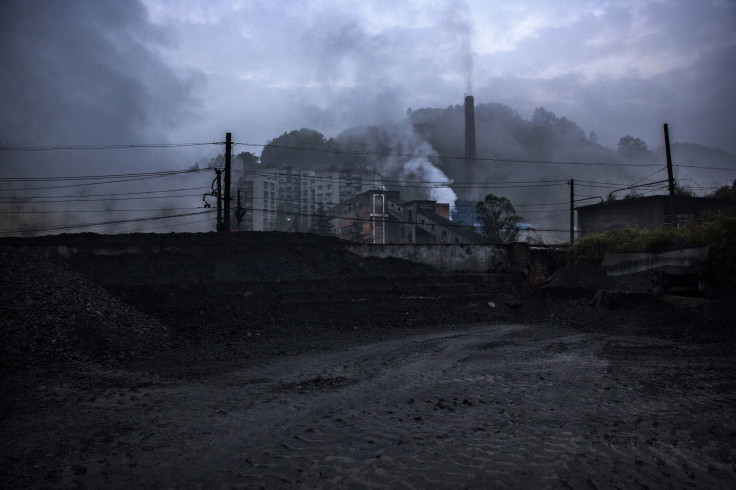Climate Change: New Study Sees Possible Decline In Global Greenhouse Gas Emissions

For the first time in history, global carbon dioxide emissions appear to be heading toward an yearly decline, possibly marking an end to an era of burgeoning global greenhouse gas emissions. According to a new study, published Monday in the journal Nature Climate Change, global carbon dioxide emissions from burning fossil fuels grew by just 0.6 percent in 2014 and are likely to have flattened or even dropped slightly in 2015.
“While carbon dioxide emissions have slowed during times of economic recession, this would be the first decline during a period of strong global economic growth,” lead author Rob Jackson, a professor of Earth system science at Stanford University, said in a statement.
Since 2000, global emissions have risen at an average annual pace of 2.4 percent, as countries such as India and China increase their reliance on coal and fossil fuels to boost growth. According to the study, which was presented at the ongoing COP21 climate summit in Paris, the slowdown in emissions growth in 2014 can be largely attributed to a recent decrease in coal use in China -- a country that is responsible for 27 percent of global carbon emissions.
“Whether a slower growth in global emissions will be sustained depends on the use of coal in China and elsewhere, and where new energy will come from,” Corinne Le Quere from the University of East Anglia in the U.K., who led the data analysis, said in a separate statement. “In 2014, more than half of new energy needs in China were met from renewable sources such as hydro, nuclear, wind, and solar power.”
According to a recent analysis by the U.S. Energy Information Administration, 2014 witnessed a drop in consumption of coal by coal-intensive industries in China such as steel, cement and fertilizer, and as a result, overall coal production and use dropped dramatically.
However, as the Chinese economy recovers from a period of slow growth and India pursues its plan to double burning of coal in power plants, emissions growth is likely to resume over the next few years, underscoring a key difference between peak emissions and zero emissions.
“It is not whether emissions stop growing that matters, it is whether they stop, period,” Kevin Trenberth, a climate scientist at the National Center for Atmospheric Research in Boulder, Colorado, who wasn’t involved in the research, told Climate Central. “It is the concentrations of carbon dioxide in the atmosphere that matter for climate, and those continue to grow as long as emissions are positive.”
Earlier this year, for the first time since records began, carbon dioxide concentrations in the atmosphere reached a record global average of 400 parts per million -- the highest level in over 650,000 years. Scientists now believe that even if man-made emissions were to be dramatically cut -- which is more than what most countries are currently offering -- the concentration of atmospheric carbon dioxide is unlikely to drop before global temperature rise breaches the internationally accepted red line of 2 degrees Celsius (3.6 degrees Fahrenheit).
Currently, India -- the fourth largest emitter of greenhouse gases in 2014 -- emits as much carbon as China did in 1990. And, earlier this year, Indian Prime Minister Narendra Modi laid out a target to double the country’s total coal output to 1.5 billion tons by the end of the decade in order to fuel domestic power production. If this is done, India is likely to become the main consumer of coal in the coming years, leading to a further rise in its carbon emissions.
“It is unlikely that emissions have peaked for good. This is because energy needs for growing economies still rely primarily on coal, and emissions decreases in some industrial countries are still modest at best,” Le Quere said, in the statement.
© Copyright IBTimes 2024. All rights reserved.






















